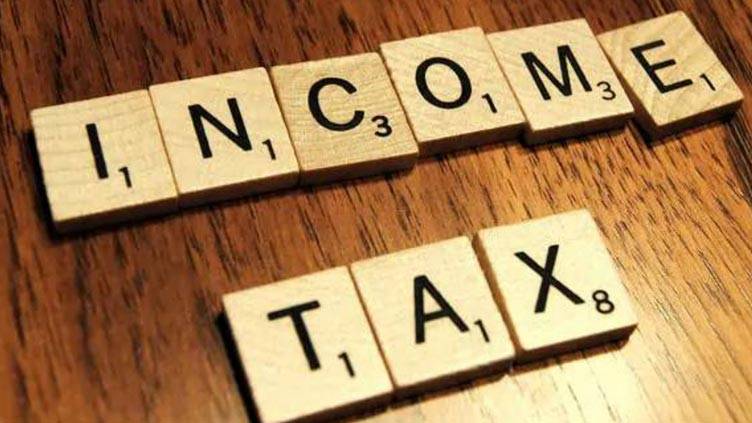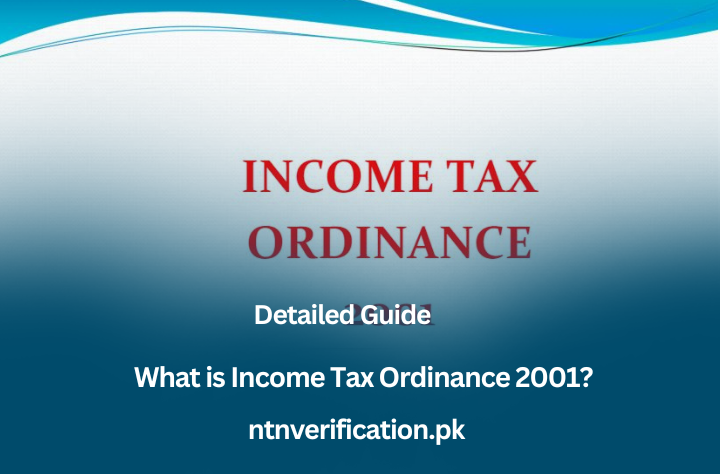Income Tax Ordinance 2001 (ITO) is the detailed legislation that provides the legal framework for administration, collection of income tax in Pakistan. ITO came into force on July 01, 2001 and amended many times, last it was amended on 2023. It provides the in-depth rules and regulations for individuals, companies, associations of persons and any other entity generating income in Pakistan.
Click here to download Income Tax Ordinance 2001 PDF amended upto 2023.
Contents
What is Income Tax?
Income tax is directly imposed on resident individuals and businesses on their taxable income for each tax year. Income tax is normally used by Government of Pakistan for development of the country such as welfare programs, infrastructure development. Rates for income tax are different for individuals, salaries individuals and non-salaried persons, association of persons and companies.

Income tax is categorized into different slabs with different income tax rates for individuals, association of persons and companies. For salaried individuals’ tax on salary is ranged from 0% for lowest salary to 35% for highest salary slab.
Tax Rates on Salary
| Salary | Tax Slab |
| Up to Rs.600,000/- | 0% |
| 600,001-1,200,000 | 2.5% of the amount above Rs.600,000/- |
| 1,200,001 – 2,400,000 | 15,000+12.5% of the amount above Rs.1,200,000/- |
| 2,400,001 – 3,600,000 | 165,000+22.5% of the amount above Rs.2,400,000/- |
| 3,600,001 – 6,000,000 | 435,000+27.5% of the amount above Rs.3,600,000/- |
| Amount Above 6,000,000 | 1,095,000+35% of the amount above Rs.6,000,000/- |
If you are a salary individual and wants to check the income tax on your salary then visit our salary tax calculator.
Tax Rates for Association of Persons
Income tax rate on association of persons rages from 0% to 35% according to the profit slab:
| Salary | Tax Slab |
| Up to Rs.600,000/- | 0% |
| 600,001 – 800,000 | 7.5% of the amount above Rs.600,000/- |
| 800,001 – 1,200,000 | 15,000+15% of the amount above Rs.800,000/- |
| 1,200,001 – 2,400,000 | 75,000+20% of the amount above Rs.1,200,000/- |
| 2,4,00,001 – 3,000,000 | 315,000+25% of the amount above Rs.2,400,000/- |
| 3,000,000 – 4,000,000 | 465,000+30% of the amount above Rs.3,000,000/- |
| Amount Above 4,000,000 | 765,000+35% of the amount above Rs.4,000,000/- |
Tax Rates for Companies
Tax rates on companies working within jurisdiction of Pakistan are given below.
| Category of Company | Rate of Tax |
| Small Company | 20% |
| Banking Company | 39% |
| Any other company | 29% |
Key Features of Income Tax Ordinance 2001
Taxable Income: As per the Income Tax Ordinance 2001 following are defined as taxable income
- Salaries and Wages: amount received or receivables by the employee from employment.
- Income from Property: Rent received or receivables by the resident person.
- Capital Gains: A gain arising on the disposal of a capital asset by a resident person.
- Dividends: amount received
- Pension: amount received from employer after retirement.
- Any other type of Income
Tax Rates and Slabs
Income tax ordinance provides tax rates and slabs where individuals, AOP and companies are taxed based on their income level.
Exemptions
To reduce the tax burden on taxpayer’s income tax ordinance provides various exemptions and deductions.
Penalties
Ordinance outlined the systems for penalties on non-compliance.
Conclusion
Income Tax Ordinance 2001 serves as a backbone of the Pakistan’s taxation system, providing the framework for assessment and collection of income tax and penalties on non-compliance. It is important for taxpayers to understand the ordinance to avoid and penalty and save tax by understanding the exemptions and deductions offered by the ordinance.
Frequently Asked Questions
Income Tax Ordinance 2001 is the detailed legislation that provides the legal framework for administration, collection of income tax in Pakistan. Income tax ordinance came into force on July 01, 2001 and amended many times, last it was amended on 2023.

